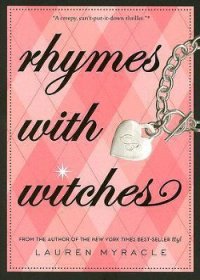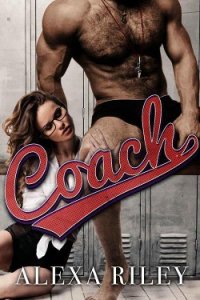The Silver Chair - Lewis Clive Staples (книги серия книги читать бесплатно полностью .TXT) 📗
She was up and dressed and had finished breakfast in front of the fire when the Nurse opened the door and said: “Here's pretty poppet's little friends come to play with her.”
In came Scrubb and the Marsh-wiggle.
“Hullo! Good morning,” said Jill. “Isn't this fun? I've slept about fifteen hours, I believe. I do feel better, don't you?”
“1 do,” said Scrubb, “but Puddleglum says he has a headache. Hullo!—your window has a window seat. If we got up on that, we could see out.” And at once they all did so: and at the first glance Jill said, “Oh, how perfectly dreadful!”
The sun was shining and, except for a few drifts, the snow had been almost completely washed away by the rain. Down below them, spread out like a map, lay the flat hill-top which they had struggled over yesterday afternoon; seen from the castle, it could not be mistaken for anything but the ruins of a gigantic city. It had been flat, as Jill now saw, because it was still, on the whole, paved, though in places the pavement was broken. The criss-cross banks were what was left of the walls of huge buildings which might once have been giants' palaces and temples. One bit of wall, about five hundred feet high, was still standing; it was that which she had thought was a cliff. The things that had looked like factory chimneys were enormous pillars, broken off at unequal heights; their fragments lay at their bases like felled trees of monstrous stone. The ledges which they had climbed down on the north side of the hill—and also, no doubt the other ledges which they had climbed up on the south side—were the remaining steps of giant stairs. To crown all, in large, dark lettering across the centre of the pavement, ran the words UNDER ME.
The three travellers looked at each other in dismay, and, after a short whistle, Scrubb said what they were all thinking, “The second and third signs muffed.” And at that moment Jill's dream rushed back into her mind.
“It's my fault,” she said in despairing tones. “I—I'd given up repeating the signs every night. If I'd been thinking about them I could have seen it was the city, even in all that snow.”
“I'm worse,” said Puddleglum. “I did see, or nearly. I thought it looked uncommonly like a ruined city.”
“You're the only one who isn't to blame,” said Scrubb. “You did try to make us stop.”
“Didn't try hard enough, though,” said the Marshwiggle. “And I'd no call to be trying. I ought to have done it. As if I couldn't have stopped you two with one hand each!”
“The truth is,” said Scrubb, “we were so jolly keen on getting to this place that we weren't bothering about anything else. At least I know I was. Ever since we met that woman with the knight who didn't talk, we've been thinking of nothing else. We'd nearly forgotten about Prince Rilian.”
“I shouldn't wonder,” said Puddleglum, “if that wasn't exactly what she intended.”
“What I don't quite understand,” said Jill, “is how we didn't see the lettering? Or could it have come there since last night. Could he—Aslan—have put it there in the night? I had such a queer dream.” And she told them all about it.
“Why, you chump!” said Scrubb. “We did see it. We got into the lettering. Don't you see? We got into the letter E in ME. That was your sunk lane. We walked along the bottom stroke of the E, due north—turned to our right along the upright—came to another turn to the right—that's the middle stroke—and then went on to the top left-hand corner, or (if you like) the north-eastern corner of the letter, and came back. Like the bally idiots we are.” He kicked the window seat savagely, and went on, “So it's no good, Pole. I know what you were thinking because I was thinking the same. You were thinking how nice it would have been if Aslan hadn't put the instructions on the stones of the ruined city till after we'd passed it. And then it would have been his fault, not ours. So likely, isn't it? No. We must just own up. We've only four signs to go by, and we've muffed the first three.”
“You mean I have,” said Jill. “It's quite true. I've spoiled everything ever since you brought me here. All the same—I'm frightfully sorry and all that—all the same, what are the instructions? UNDER ME doesn't seem to make much sense.”
“Yes it does, though,” said Puddleglum. “It means we've got to look for the Prince under that city.”
“But how can we?” asked Jill.
“That's the question,” said Puddleglum, rubbing his big, frog-like hands together. “How can we now? No doubt, if we'd had our minds on our job when we were at the Ruinous City, we'd have been shown how—found a little door, or a cave, or a tunnel, met someone to help us. Might have been (you never know) Aslan himself. We'd have got down under those paving-stones somehow or other. Aslan's instructions always work: there are no exceptions. But how to do it now—that's another matter.”
“Well, we shall just have to go back, I suppose,” said Jill.
“Easy, isn't it?” said Puddleglum. “We might try opening that door to begin with.” And they all looked at the door and saw that none of them could reach the handle, and that almost certainly no one could turn it if they did.
“Do you think they won't let us out if we ask?” said Jill. And nobody said, but everyone thought, “Supposing they don't.”
It was not a pleasant idea. Puddleglum was dead against any idea of telling the giants their real business and simply asking to be let out; and of course the children couldn't tell without his permission, because they had promised. And all three felt pretty sure that there would be no chance of escaping from the castle by night. Once they were in their rooms with the doors shut, they would be prisoners till morning. They might, of course, ask to have their doors left open, but that would rouse suspicions.
“Our only chance,” said Scrubb, “is to try to sneak away by daylight. Mightn't there be an hour in the afternoon when most of the giants are asleep?—and if we could steal down into the kitchen, mightn't there be a back door open?”
“It's hardly what I call a Chance,” said the Marshwiggle. “But it's all the chance we're likely to get.” As a matter of fact, Scrubb's plan was not quite so hopeless as you might think. If you want to get out of a house without being seen, the middle of the afternoon is in some ways a better time to try it than the middle of the night. Doors and windows are more likely to be open; and if you are caught, you can always pretend you weren't meaning to go far and had no particular plans. (It is very hard to make either giants or grown-ups believe this if you're found climbing out of a bedroom window at one o'clock in the morning.)
“We must put them off their guard, though,” said Scrubb. “We must pretend we love being here and are longing for this Autumn Feast.”
“That's tomorrow night,” said Puddleglum. “I heard one of them say so.”
“I see,” said Jill. “We must pretend to be awfully excited about it, and keep on asking questions. They think we're absolute infants anyway, which will make it easier.”
“Gay,” said Puddleglum with a deep sigh. “That's what we've got to be. Gay. As if we hadn't a care in the world. Frolicsome. You two youngsters haven't always got very high spirits, I've noticed. You must watch me, and do as I do. I'll be gay. Like this”—and he assumed a ghastly grin. “And frolicsome”—here he cut a most mournful caper. “You'll soon get into it, if you keep your eyes on me. They think I'm a funny fellow already, you see. I dare say you two thought I was a trifle tipsy last night, but I do assure you it was—well, most of it was—put on. I had an idea it would come in useful, somehow.”
The children, when they talked over their adventures afterwards, could never feel sure whether this last statement was quite strictly true; but they were sure that Puddleglum thought it was true when he made it.
“All right. Gay's the word,” said Scrubb. “Now, if we could only get someone to open this door. While we're fooling about and being gay, we've got to find out all we can about this castle.”



